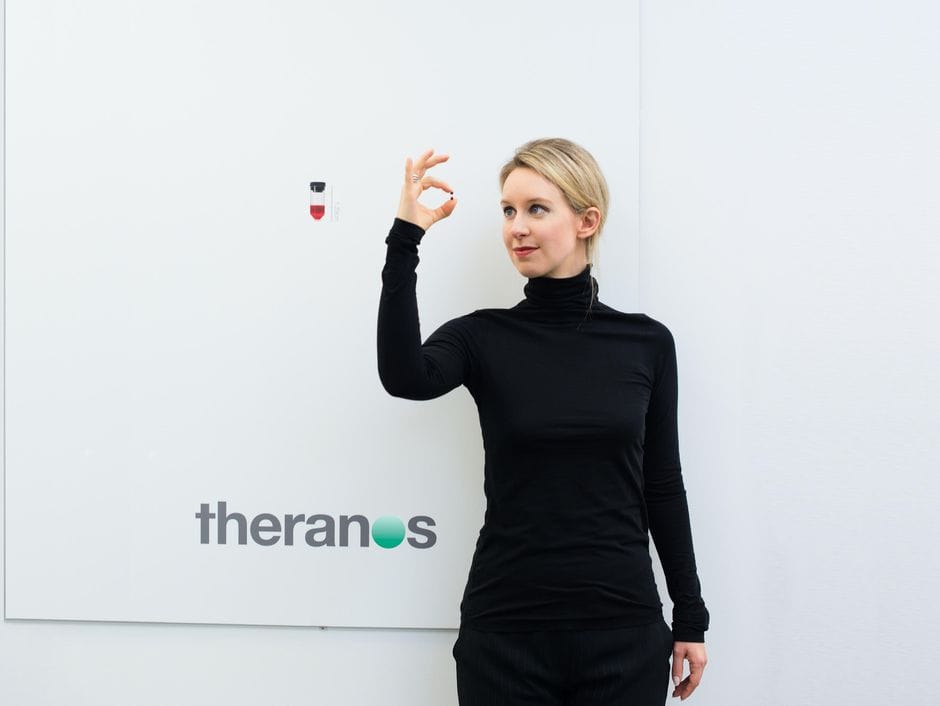
Por Cristóbal Fredes
December 1, 2022
CEOs of two promising Latin American healthtech startups, Examedi and Prosperia, shared with us their opinion on Elizabeth Holmes, recently sentenced to 11 years in prison for the Theranos case, the company that was supposed to change global health and turned out to be a fraud.
Although the Theranos case has been known for a long time, since a 2015 article by journalist John Carreyrou sowed doubts about the effectiveness of its technology, around the same time that this healthtech had a US$10 billion valuation, a chapter was recently closed: Elizabeth Holmes—its founder, “the new Steve Jobs” and the subject of many magazine covers—was sentenced to 11 years in prison.
The case, which the same journalist explored in depth in the book “Bad Blood”, was massified when it reached the news and television, especially through the series “The Dropout,” which can be streamed in LatAm on Star+.
Two CEOs and founders of healthcare startups in the region agreed to share their opinion on the case and on the role that healthcare companies should play.
Ian Lee
CEO of Examedi

(Photo: Examedi)
[The Theranos case] is a big stain on the world of capital raising and does a disservice to new ideas. Still, it has never meant a comment to us. We are very different. We don’t innovate in healthcare as such, but we do innovate in logistics to bring healthcare closer to patients in a simple, fast, agile, and accessible way.
Should healthtech companies have higher standards in terms of transparency and social responsibility?
Absolutely, and that is already the case. We don’t know for sure if it is specifically because of this case, but everything related to healthcare must always have the strictest quality controls. We are dealing with people and families. We understand that responsibility, and we feel that the world of technology and health also understands it.
Examedi is a healthtech operating in Chile and Mexico dedicated to providing clinical analysis and other medical services at home. Last June, it closed a Series A for US$17 million led by General Catalyst.
Cristina Campero
CEO of Prosperia

(Photo: Prosperia)
First of all, I would like to state that without a doubt, what Elizabeth Holmes did was wrong, resulting in billions of dollars lost and, more importantly, putting the lives of thousands of patients at risk with false lab results.
However, I believe that to some extent (much more limited, of course), “fake it until you make it,” promising customers and investors features that are barely in development, is part of every startup’s beginning, and it is partly the role of customers, investors and regulatory agencies to control it.
Additionally, I think it is unfair to judge Elizabeth Holmes without considering her context. I believe that because of her age, gender, and the promise of such a disruptive idea, many of these controls were omitted by her investors, clients, and team and being put in such a spotlight (the youngest female billionaire in history, capable of disrupting the healthcare industry) put undue pressure on her that made it impossible for her to slow down the immense snowball she had created.
Finally, I believe that deep down, she always had a naïve conviction that they would make it, that technology would advance, and that fraud and lies were a temporary means to revolutionize the healthcare industry and help many patients.
Prosperia is a Mexican startup dedicated to the early detection of chronic diseases using artificial intelligence. Its latest capital raising was in July, a US$2 million seed round led by Swedish fund Cardo Health.
You may also be interested in: The Downfall of Iconic Startups Takes Over Hollywood